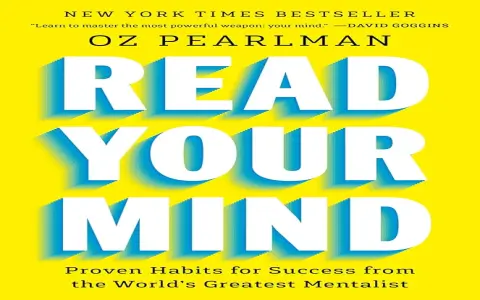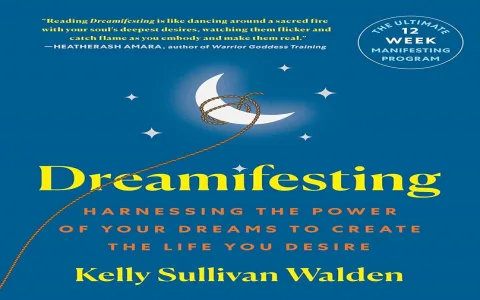Look, I see all the fancy guides out there talking about MILD techniques, supplements, and setting specific intentions. It all sounds terribly complicated, like you need a certification just to fall asleep. Frankly, my “victory” in the dream world—where I consistently solve problems, or figure stuff out, or just manage to fly instead of falling—came not from reading textbooks but from sheer, disorganized desperation. I wasn’t trying to become spiritually awakened; I was just trying to fix stuff that was broken in my waking life.
For years, I struggled. I tried to follow the rules. I bought the mandatory dream journals, kept them next to the bed, and tried to remember everything the moment I woke up. Result? Five scribbled words about a vague green object and an overwhelming feeling of frustration. It was junk. My practice was a bust, and the only victory I was getting was hitting the snooze button.
Then life threw me a curveball—a huge, multi-year curveball that involved a deeply stressful job transition and a financial situation that made sleep feel like a luxury. That’s when my dreaming went completely haywire, and ironically, that’s when I started winning. I didn’t plan it; the chaos just forced my brain into a new mode.
I realized my success wasn’t due to structured technique; it was due to five completely unglamorous, often messy habits that arose from real-life stress. These are the things I actually do, and why they work, even if they sound ridiculous.
The 5 Real Reasons I Keep Crushing It in My Dreams
- 1. I Stopped Looking for “Profound” Meaning and Started Looking for Ugly Consistency.
All the experts say your dream signs should be meaningful symbols—a talking raven, or a clock that runs backward. Mine? It was always the same damn chipped mug from my old office job, placed on a table that shouldn’t be there. I locked onto that mundane detail. Whenever I saw that mug, even if the rest of the dream was normal, I knew I was dreaming. I trained myself to see the boring anomalies, not the big explosions. It’s a cheap trick, but it’s reliable.
- 2. Extreme Rehearsal: I Use Dreams for Grudge Matches and Practice Runs.
Why am I winning? Because I demand to win. Back when I was fighting with my old employer over severance (long story, terrible company), I couldn’t stop thinking about the conversation. Every night, my brain would put me in that room. Instead of just letting the nightmare happen, I forced myself to rehearse the perfect, calm, devastating comeback. I did this maybe thirty times until the dream version of my boss just started nodding weakly. When the real meeting happened, it felt easy. My dreams had become a high-stakes, low-risk training simulation.
- 3. The Power of Annoyance and Interruption.
Forget the WBTB (Wake Back To Bed) method where you set a nice alarm and read. My actual success came from the fact that my toddler was waking me up every two hours for six months straight. I didn’t get a choice in waking up. I’d be ripped out of deep REM, furious, and then try to crash back into sleep immediately. That fractured, stressed sleep state is gold. My brain was still cycling through the dream but now had a splash of reality injected into it. If you want lucid dreams, try dealing with a very high-maintenance pet or child. Structure is the enemy here; random interruptions kickstarted lucidity.
- 4. I Treat My Dream Journal Like a Haphazard Crime Scene Report.
I ditched the fancy journals and started grabbing whatever was nearest—receipts, napkins, backs of bills. I scribbled down not just the event, but the specific, messy physics. How did the air feel? How far could I jump? I documented the “rules” of that night’s specific dream world. One night, doors only opened counter-clockwise. The next, gravity was halved. By tracking the temporary, irrational physics, I learned to instantly recognize when the laws of reality had been broken. It’s like being a detective for bad continuity.
- 5. Complete Lack of Spiritual Pretense.
This is the big one. I stopped trying to find my inner child or connect with the cosmos. That stuff is exhausting. I started treating the dream world like a cheap video game sandbox. Can I fly today? Yes. Can I lift that building? Maybe. Can I eat that entire cake? Definitely. Because I reduced the stakes to zero, I gained total control. Winning in dreams stopped being a profound mystical quest and just became a fun way to mess around. That psychological relief is what actually frees up your consciousness to take the wheel.
How I Discovered This Messy System
You want to know how I really figured all this out? It goes back to when I was working for a truly awful startup that was about to go belly up. They were making us work 80 hours a week, and I was running on fumes. I needed to finish one key project before the whole place exploded, just so I could put a good item on my resume.
I was so obsessed that when I finally managed to sleep, my dreams weren’t relaxing; they were just more work. I would literally be in a dream version of the office, trying to write code or debug a system. The dream version was buggy as hell, which was the first sign something was wrong. But I was so driven to finish that project—my entire financial future felt like it hinged on it—that I started making progress in the dream environment.
I realized that if I could manipulate the dream to fix the fake code, I could figure out the real solution by morning. The need for a tangible win in real life directly fueled the ability to control the dream scenario. It wasn’t about finding inner peace; it was about avoiding poverty. The intense, ugly, high-stakes pressure from that job taught me more about lucid dreaming than any expensive book ever could. I didn’t seek the victory; the desperation for survival brought it on. So yeah, I keep winning in my dreams, but it’s because my subconscious is still paranoid about deadlines.













